After years away from the intrusive eyes of the Press and the public, George Harrison doesn’t know if he has any fans left. His latest album, ‘Cloud Nine’, will be the acid test. Truth be told, he shouldn’t be seeing me at all. For, talking to the media is not a normal day-to-day activity for 44 year old George Harrison, ex-Beatle, film magnate, country landowner and enthusiastic gardener. There’s a reason for our meeting, though. George Harrison recently issued his first new album in five years, ‘Cloud Nine’. It deserves to sell. The problem is, there’s only one way it can – and promoting albums is not something for which Harrison is famous. From his Beatle days, he's always been seen as 'The Quiet One'. “It's true. I did no promotion at all for the last two albums, literally nothing, and they sold very few copies,” Harrison admits. “Radio stations tend to say, 'Well, screw him, if he’s not bothering to push it, why should we?' I don’t enjoy pushing myself forward, or the selling side of anything, but it’s my desire that people hear this record. I think it's a good one.” However powerful the reason, rejoining the media merry-go-round is still a painful experience for Harrison. After a number of last minute changes of plan, I was talking to him at Shepperton Film Studios. He had been filming with Selina Scott for CBS Television. Three hours’ shooting for perhaps a fifteen minute slot, including commercials, with a snatch of Beatles archive footage, a brief interview plus Harrison’s new video – and he had shown remarkable restraint throughout. But when he finally sauntered away from the camera afterwards he was very quick to suggest a trip to the bar. Glancing at Selina he said, albeit kindly, “You know, these media megastars are not on my wavelength. Never were.” Over a pint of brown ale the repartee, the gentle humour and the talkative nature which those who really know Harrison insist have always been there, started to shine through. A tubby studio worker interrupts for the inevitable autograph. He asks with a reverence unusual for those 'in the business'. Harrison’s reaction is both genuine and remarkable. He listens carefully as the man unfolds a long-winded and nervous story of how, as a lad, he had seen the Beatles in concert in Plymouth and Exeter. Harrison smiles slowly. He signs. “God bless you!” says the stranger to him. “No, God bless you,” replies Harrison, softly, earnestly but with humour – adding with a gentle smile, “God is within you, you know? Remember that.” Then, with a wink at me, Harrison takes back the scrap of paper and says, “Hold on, we can do better than this.” And he adds the signatures of Paul McCartney, John Lennon and Ringo Starr to his own. “I used to be the one who had to do this all the time in the Fabs,” he remarks, the Fabs being an abbreviated form of the 'Fab Four' tag used by Beatles aficionados. Then, after adding the regulation starry flourish under Ringo’s signature which marks it out as 'genuine', Harrison says, “We will see that one in Sothebys next year, won’t we, mate?” The studio worker responds fervently, “No way, you can count on that, no way at all!” He then leaves, looking down at the piece of paper before shaking his head and muttering, “My missus will never believe this.” A senior studio manager standing nearby remarked to me at this point, “George still makes groupies out of all of them, you know. Don’t ever say that Beatle power is dead.” George’s reaction to this comment is one of seriousness. “I’ve gone through stages of thinking it crazy or sick, but of course I realise now it isn’t. I have thought this kind of adulation is real and unreal, good, bad. In all honesty, I just don’t know. What I can say though is that it has less to do with us as individuals than with the time, the era that 'Beatles' is shorthand for. People really are kind of worshipping their own past - and there’s nothing wrong with that so long as they don’t get it out of perspective. But you’re not going to get me to say that we were or weren’t gods; it’s more than twenty years since John Lennon got tripped up over that and he was badly misunderstood. We’re all much wiser now – those of us who are left.” Contrary to popular opinion, Harrison has not been musically inactive these past five years. Apart from all the private tapes made at his home studio – one of the finest recording studios in the country – and his contribution to a memorable television special starring Carl Perkins, 'Carl-Aid', as Harrison calls it, he has made surprise stage appearances in a number of concerts and has played many sessions on disc. A charity album here, a film soundtrack there. He has also written a great many songs, often under various aliases, and several of the non-attributable compositions have been major hits for some of today’s generation of rock stars. The notion of Harrison’s “inactivity” is very much a case of public misunderstanding. A problem of perception, as Harrison puts it. “People keep saying I haven’t done anything for five years. But actually I’ve done a lot. It cracks me up. Every article I did in the States – for ‘Newsweek’,’The LA Times’, ‘Musician’ – they are all saying, 'The Quiet Beatle finally talks!' Well, if I am the 'Quiet One', then the others must have been very noisy indeed!” Harrison’s laughter at this quickly evaporates. “Yes, I really do understand that the media have to have tags to hang on people, but none of them is really me,” he continues. “Sometimes I’m noisy and sometimes I’m quiet. They once had me as 'the Business Beatle' because I asked Brian Epstein how much we got paid for a gig!” Listening to the man who not so long ago stated, “I don’t want to be a film star. I don’t even want to be a pop star,” I wondered what would happen if the new album sold so well that it propelled Harrison right back into the limelight. After all, the single soared straight to No 2 which is no mean achievement for any 44 year old! “Well, I just don’t have a desire to be a pop star. And acting, well that has to be the most boring job in the world, second only to modelling. I really just want to be a musician, somebody who writes songs, who makes music. I don’t really see myself being out there like the George Michaels or the Mick Jaggers. I’m not putting them down at all of course, but they have live performance built right into them. Mick was always the front guy in the Stones and he’s been dancing about, prancing in the moonlight, all his life. Everything he ever does, publicly or privately, is a performance. I used to detest and dread dancing. I just don’t understand it. The furthest I ever went was the Liverpool Leg!” The message here, clearly, though I was asked not to spell it out and to let 'Them' just deduce it from the article, is that all offers of any concert tours will be rejected always and in all circumstances! In recent years, George Harrison has gained a rather peculiar reputation in the press. 'The Howard Hughes of Rock', 'The Hermit of Henley-upon-Thames' with fingernails down to his ankles, 'The man whose toilet plays ‘Lucy in the Sky with Diamonds’ when flushed,' (“What’s wrong with that!” Harrison exclaimed when I asked him for confirmation of this strange fact). He's also alleged to be 'The man who tears around his estate in his Porsche at 120 mph and uses 33 gardeners.' Harrison dismisses most of the stories out of hand. “The image is all wrong,” he insists. “As Bob Dylan said years ago, 'The moment I speak, I become my enemy.' I just wanted to have a quieter time. Anyway, there is less chance of people twisting what you say if you don’t say anything. They have all had their share of conceptualising me but I have just gone about my life like a normal person. Every so often I see a newspaper headline saying I’m this, that or the other, but, as Jeff Lynne says, 'This is tomorrow’s fish and chip paper'.” “There is a part of me which likes to keep quiet. I do prefer wide open, quiet spaces to traffic jams and razzmatazz. I was like that even as a kid, when I lived on the outskirts of Liverpool and I used to walk miles along the mud banks of the Mersey – they seemed like cliffs to me then – and through the farm fields and the woods. John Lennon’s death convinced me that the lifestyle I lead is better than the one he chose. To have some peace and quiet, rather than live in the middle of New York City which, let’s face it, is a hellish madhouse. It always struck me as odd that John so enjoyed New York. He had the same love of open spaces and fresh air as I did when we were young. Mind you, his people had the money to take him to the Lake District, the Isle of Man and Scotland, so he got to see some real cliffs, whereas some of us had to make do with substitutes and a lot of imagination.” Harrison’s role as parent to his son, Dhani, reflects his views. Dhani, who lives with George and his second wife, Olivia, at Friar Park, Harrison's Henley mansion, has been kept so far away from the press and photographers that very few have any clue what he looks like. As a consequence, Dhani can walk in the streets unmolested and without hassle, functioning as a normal nine year old; free. “It is so important to me that Dhani should have a relatively normal upbringing. There is a limit, of course, to how far this is possible, but, without taking chances, I am anxious to ensure that he has a real, grounded and relatively unspoilt childhood.” We talked on for half an hour or so about family aspects of Harrison’s life and about his friends locally - like 'Legs' Larry Smith of the Bonzo Dog Doo-Dah Band and rock guitarist Joe Brown, for example - who are clearly very important to him. Harrison is also close to friends in the world of Formula One motor racing like Jackie Stewart and Frank Williams plus their families. He was anxious that none of the detail of this should be recorded and I agreed to respect his wishes. But I am sure Harrison will not mind me saying that he has an exceptionally pragmatic, well-balanced attitude towards the closest relationships in his life and his good friends. He is clearly a contented man. His infectious happiness does, I am sure, derive partly from his success at building as normal a family home life as is possible for someone subjected to so much public adoration plus media attention and with so much wealth and influence. In 1978, at more or less the same time as Harrison began to retreat from the record business, he bailed out the Monty Python team, who had been left high and dry by EMI’s decision to withdraw from ‘The Life of Brian’. The Pythons had long been friends of George and this, coupled with a simple desire to see the film in the cinemas, led Harrison and his business manager, Denis O’Brien, to raise the money themselves. Before they knew it, HandMade Films had been launched – a title suggested by Harrison. Eight years later, HandMade is going strong with eleven films released, and nine now in production. Even if Harrison is not, as some here called him – to his horror – 'the saviour of the British film industry', he has at least played a laudable role in keeping a previously sinking ship afloat. But rescuing the Pythons could so easily have backfired. “We put up our London office building and my house as collateral.” Does that mean, I enquired, that if ‘The Life of Brian’ had flopped, George would have been out of his splendid mansion in Henley? “Yes, quite likely, but the Pythons knew how much we were putting on the line and I think they appreciated it. Their own commitment couldn’t have been greater.” With his considerable experience of the record industry, George Harrison thought himself familiar with sharp business practises, but he was in for a shock when it came to films. “The film industry is a wicked business. Utterly brutal. Much more so than the record industry. But Denis O’Brien has to deal with most of that; I would not be in this business if I had to deal with those people personally. Indeed, there are very few businesses I would be in if I had to be personally involved. I tend not only to find business people boring, but they are so often shallow, immoral and unhealthy in every sense of the word. Nevertheless, I am a realist and to survive one has to learn how to deal with them. My own technique is to take a back seat and employ someone to do the dealing who really has a lot of experience and who is much braver than I am. With ‘Time Bandits’, many cinemas down the Eastern Seaboard of the USA would not pay over the box office money. They held it for six or nine months, investing our money. But it is all Mafia connections and there’s nothing you can do about it.” Harrison’s role at HandMade is quite relaxed. If he is so disposed, he will pop along to the odd day’s shooting or check out the rushes. Occasionally, he has provided the soundtrack music or, even more rarely, made a guest appearance on celluloid. He reads some of the scripts through, the already approved ones, but steadfastly leaves the day-to-day running of the company to others. This is not to say he has relinquished a direct role in company affairs, though. Far from it. He admits he can cancel any HandMade project at whim, even a potential major money spinner, if he doesn’t care for the storyline and if he “shouts loud enough”. He did in fact stop one film project, a biopic about Picasso, because it reminded him of the way the Beatles had been treated. “I knew that Picasso’s wife and family were still alive and I’d hate to do to them what people have done to us in the Beatles; make out something to be a documentary and then get it all wrong. And, in fact, I had met Picasso a number of times and, frankly, the whole thing did not ring true to me. It was being made by people who had never even met the guy. So I cancelled it.” There are a number of other subjects about which Harrison is passionate. And, in fact, his business interests are far-ranging. Many of them he would prefer me not to list or identify – not for any sinister reason, just because he prefers to maintain a relatively low profile. But I am told by other sources his interests range through record labels, rock-band management, PR companies, retailing (from clothes to posters to health food), video and TV companies, theatre production companies, and even some more unusual activities like riding stables, a country club, garden centres, restaurants, a car showroom, a small farm in Cumbria and, once briefly, a Formula One motor racing team. He has been involved in a number of public campaigns, too. Get him talking on some of his interests and one can see why to call him 'The Quiet One' is misguided and to think of him as merely one of the 'other' or 'less intelligent' Beatles is nonsense. Speaking with great fluency, Harrison recounts the story of his efforts as one of the 'Save the Regal' group of campaigners, to preserve the quaint art-deco Regal cinema in Henley from the clutches of redevelopers – in this case this the supermarket chain, Waitrose, part of the John Lewis Partnership. “People think that the cinema has now been saved, but that is simply not true. We are still fighting the John Lewis Partnership who own the cinema and, in some respects, some members of the South Oxfordshire District Council, too – whose goal in life seems to just have small-time power and importance. All these people are very difficult to fight and in my view it comes down to utter greed, the greed of people who don’t live in the immediate neighbourhood but are trying to control it. Many of them are even newcomers to the area and by new I mean they moved here within the last three or five years – they’re not even reasonably well-established newcomers like myself – after all, I’ve been in Henley for almost twenty years, now. These people want a huge supermarket on the Regal site and they won’t go to the industrial estate where there’s parking space for their customers without having to blight the centre of town. The street where the cinema stands is so narrow and very busy. Someone was killed there by a truck just a couple of months back. It was nobody’s fault, particularly, just the impossible situation of putting 38 ton trucks through streets designed for horses and carts.” “And the cinema in Henley does serve a purpose, a very real purpose, especially for the young,” Harrison continued. “You see, even in a place like Henley-on-Thames there are youngsters who are not from particularly well-off families. Some of them live on the borderline of real poverty. And there’s a limit to how much there is for people like that to do. For some time we ran a special scheme of subsidised ticket prices for such young people and it worked wonderfully well. We asked Michael Heseltine, our local MP, to ask Nicholas Ridley, the Secretary of State for the Environment,to make the cinema a listed building. It is a period piece. But Heseltine said to me, 'It is not a good enough building to save, you know, and quite honestly, George, you cannot stop it from being knocked down.' So I said, 'Well, there is too much traffic coming over Henley Bridge anyway, why don’t we knock that down and make a nice big, wide, concrete one? In principle, I don’t see that there’s any real difference.' And he said, 'George, don’t be so ridiculous! That bridge is an old structure and is so much part of Henley, it’s important to Henley!' I replied, 'But if you take the cinema away, then something else, and then something else, then you slowly change the town. The cinema is just as important as the bridge in that respect, and the cinema has a social function that no bridge can ever have.' And, you know, Heseltine looked at me as if to say, 'Shut your mouth, you ignorant Liverpool git!'” “But all politicians are the same. They have an arrogance, an aloofness and a coldness that in a perfect world would instantly disqualify them from any power. As Bob Dylan once said, 'Money doesn’t talk, it swears!'” As he admitted to me, quoting Bob Dylan has long been a Harrison pastime and in the bar at Shepperton he talked about an ambition to collaborate with Dylan musically. He would also like to put together a book of Dylan quotes. Harrison claimed that, contrary to what some people suggest, virtually all Dylan’s quotes are original and he believes that a Dylan book of quotations would still have a market well into the 21st century and possibly even beyond. “Yes, I do think there is something pretty exceptional about Bob and I would like to record with him. I have had this idea of forming a band with some of my mates – like Bob Dylan, Joe Brown, Jeff Lynne and maybe Tom Petty and Roy Orbison. Writing original stuff, just having fun without too much pressure. Whether it will happen I don't know as contractual and legal stuff can block these things. But that would be a good way to follow up on ‘Cloud Nine’. I've been thinking about names - before we even have a band, of course! - and I might call it the Wilburys. You see, that's what we say when we make a cock-up in the studio...I call it doing a 'wilbury'. Some of us have grown a bit shy of public performance these days – so maybe we should call the band the Trembling Wilburys, or should it be Wilberries? It is just an idea but maybe early next year I'll persuade Jeff Lynne and Joe Brown and some of the others to give it a go. It doesn't sound too crazy an idea, does it?” I said this sounded great, perhaps it would be the ultimate 'supergroup' – if diaries, record contracts and managers would permit. Though it would take some organizing! And maybe Trembling might not be the best adjective to describe a band of 40-somethings? Anyway, “watch and see”, Harrison advised...as “you just never know what George might be able to do!”. Naturally,being a good Speke lad, George Harrison is extremely distressed at the plight of Liverpool in recent years. He was less than flattering about Michael Heseltine’s role in this – but he felt it would be unwise to quote his detailed and well-researched views on the matter. It's not just Liverpool, though – Harrison is extremely concerned about the plight of all the major old industrial cities in the country. He had a cynicism about the Government’s motives in its recent declarations of commitment to improve the inner cities, and he had obviously taken time to amass a wealth of detailed information about the issues and the Government’s approach to them. “I know it must sound strange from someone who’s made a lot of money out of selling records, but the present yuppie consumerism spurred on by Mrs Thatcher and her friends is absolute anathema to me. It is, I believe, amoral and ultimately very corrupting. I despise the politicians – and there are so many of them like this in the present Government – who urge us on to new heights of consumerism, who elevate the yuppie to the ultimate pinnacle as the ideal to be copied by all. This idea that profit and the private sector must rule everything is just crazy to me. I don’t accept it at all.” Harrison clearly loves Britain, enough to have stayed put at a time when he was paying tax somewhere in the 90% bracket. Harrison’s big hobby in recent years has certainly been gardening, and although Harrison has never employed the 33 gardeners attributed to him – at times the number has approached 20 – he does take it seriously, likening working with the soil to a form of meditation. “There is definitely something ultimately mystical about gardening. Giving something back.” Harrison is pleased that so many people are now catching on. “Gardening is spreading,” he says, “and that really is great news. It pleases me. But, again, there was this guy who wanted to start up a garden centre near Henley in a village called Woodcote and they gave him such a hard time. He battled for years and years to get permission to open. It is now lovely to see people at the weekends driving out from his little place with tiny trees sticking out of their car windows!” I asked Harrison about the help that he is so often said to give to local people in situations like this. For example, had he paid for the garden centre proprietor’s planning appeal expenses? Harrison smiled and said, “You know, I never answer questions like that. It’s better simply to think that God ensured the right decision was reached, ultimately.” Harrison’s has been a journey from a council estate in Liverpool to world fame, millionaire status, a mansion in Henley plus much more. And it all comes down to having been one of the Fabs. But George Harrison doesn’t listen to the group’s records – or only very rarely. And he simply cannot even now really fathom the unceasing media obsession with a pop group which split up seventeen years ago. Harrison feels he has the perfect quote to express his ten-year membership of perhaps the most famous 20th century group of entertainers. It is his own quote – but one he was surprised to hear himself uttering when he recently saw an old news reel of an interview he gave in 1971. It is, “I guess if you have got to be in a rock group, it might as well be the Beatles.” Since human memory has a tendency to blot out the bad images and preserve only the good, it says a great deal for Harrison’s view of the Beatles and what they went through, that only now is the good starting to edge out the bad. “These days I have begun to remember a lot of the good stuff. It used to be I only ever remembered the bad, but enough time has gone by now for everything to be okay. It’s all right now, as the song says! But the law suits continue and I would love to see the day when it is all unscrambled Frankly, the material aspect of it all is really not very important to me or indeed to Ringo or to Paul at this stage. But there are so many other vested interests involved that it’s like some gigantic avalanche. Now it has started it can’t be stopped. I just hope it doesn’t end up burying all of us,” he laughed. Harrison is genuinely unsure if he still has any fans, although he expresses a hope that the old Beatles fans have grown up and got married, have had kids and are acting more responsibly. “I hope they also have a space somewhere in their hearts for us. Take that big guy just now who asked for the autograph. He looked like a huge, rough, tough truck driver but he was really very gentle. You know that does please me and perhaps it is idealistic, but I would like to think that the Beatles fans have mostly grown up that way. That somehow they did gain from the Beatles experience, as indeed we did, and that ultimately they all appreciate that love is always better than war. Okay, it sounds a very sixties sentiment, but as far as I am concerned there really is still a lot in it, and I have seen nothing in any of the cultural changes since which convinces me that message, although perhaps it was rather naively expressed by us all back then, is not actually a better message than most.” It used to be that Harrison avoided even talking about the Beatles, certainly publicly. But now he doesn’t mind, though it is still an unwise move to limit conversation exclusively to the group. It is not that he is particularly opposed to getting into Beatles-type discussions but, as he says, when normally would one talk to someone exclusively about things that stopped happening seventeen years ago? So those who know his attitude to the Beatles have therefore been surprised at the inclusion on ‘Cloud Nine’ of a mock Beatles song, ‘When We Was Fab’. The song’s lyrics include direct references to times past, and the melody and orchestration are straight out of ‘I am a Walrus’ with a heavy ‘Sergeant Pepper’ influence, too. As George Harrison says, this was undoubtedly the realisation of a fantasy for co-producer Jeff Lynne, for so many years a Beatles admirer and, by his own admission, imitator, with his Electric Light Orchestra. Harrison talked at some length about Jeff Lynne for whom he clearly has great admiration. Success or failure, ‘Cloud Nine’ seems set to mark a turning point in Harrison’s musical career. If it is a success, he will inevitably have to maintain a higher public profile – though he is determined to do it all by video – and, probably, he will make more albums, at least one every year. If it fails, it could well be the last time he issues a George Harrison record. That is not to say that Harrison will stop making music. If his idea of a new band involving his famous mates does not happen, then he would return to making private tapes solely for his own satisfaction. He is now a very accomplished player on some fifty-three different instruments, perhaps the most surprising of which is the church organ. But certainly he is unlikely to renew his now expired five album recording contract and he may prefer to place his future records on a one-off basis. “Maybe I’ll even do mail order,” he says jokily. However, from the early signs, it does look as if ‘Cloud Nine’ is destined to be a reasonable success. Those who remember George Harrison as a devoutly religious man, interested in all things Eastern, will find that aspect of his life little changed, except that he now keeps his religious beliefs more to himself. His view of gardening as an almost mystical pastime is no longer regarded as quite as odd as it was in the early 1970s. And neither is his belief in alternative medicine – he was talking about such matters as acupuncture, chiropractic, reflexology and meditational methods of countering depression when such things were almost unknown in the UK. But today, many members of the medical profession regard such areas as very significant. There is no trace of Indian instruments or religious lyrics on ‘Cloud Nine’ except in ‘When We Was Fab’ when a lone sitar serves as a neat parody of all those 1960s Harrison songs. When the album promotional work is over – and it is scheduled to continue for a further two months, into early 1988, George Harrison will probably slip quietly away from the glare of publicity and back on to the sidelines. He was for a while a nightclubber and raver, but not for many years now. He has finally settled down. “I spoke to George Martin recently,” he says, “and he was talking about all the 'Twenty Years Ago Today' stuff and the Beatles CDs and he said, 'Never mind, George, it will soon all be gone again and we can creep quietly back into our shells.'” “And you know, maybe that is just what I’ll do. If I am really honest with you, it is what I would like to do most of all. But first, I will just see this record through. After all, it’s only a record, you know. Yes, maybe what I’d like to do when it’s over and done is to just go back to being an ordinary person, not trying to be out there talking to everybody about everything that I know so little about. And I don’t know much, you know!”
Band Links:-
https://www.georgeharrison.com/https://www.facebook.com/georgeharrison
https://twitter.com/georgeharrison
https://en.wikipedia.org/wiki/George_Harrison
https://www.instagram.com/georgeharrisonofficial
Picture Gallery:-
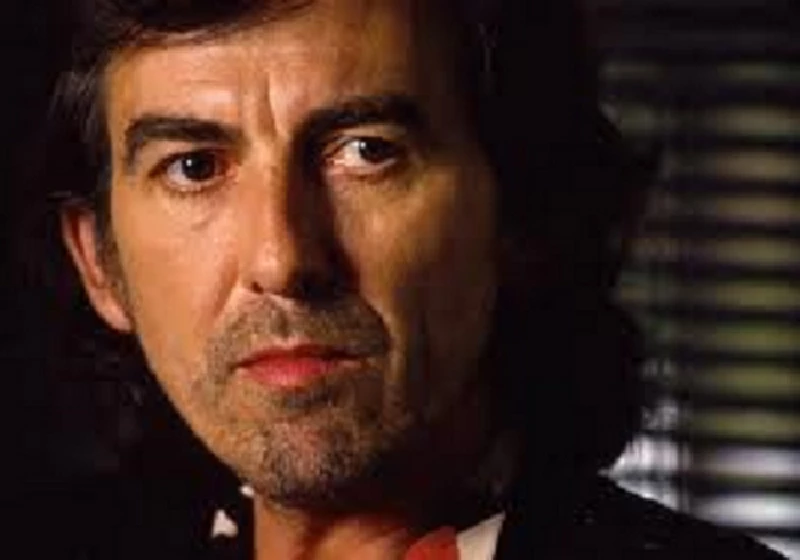
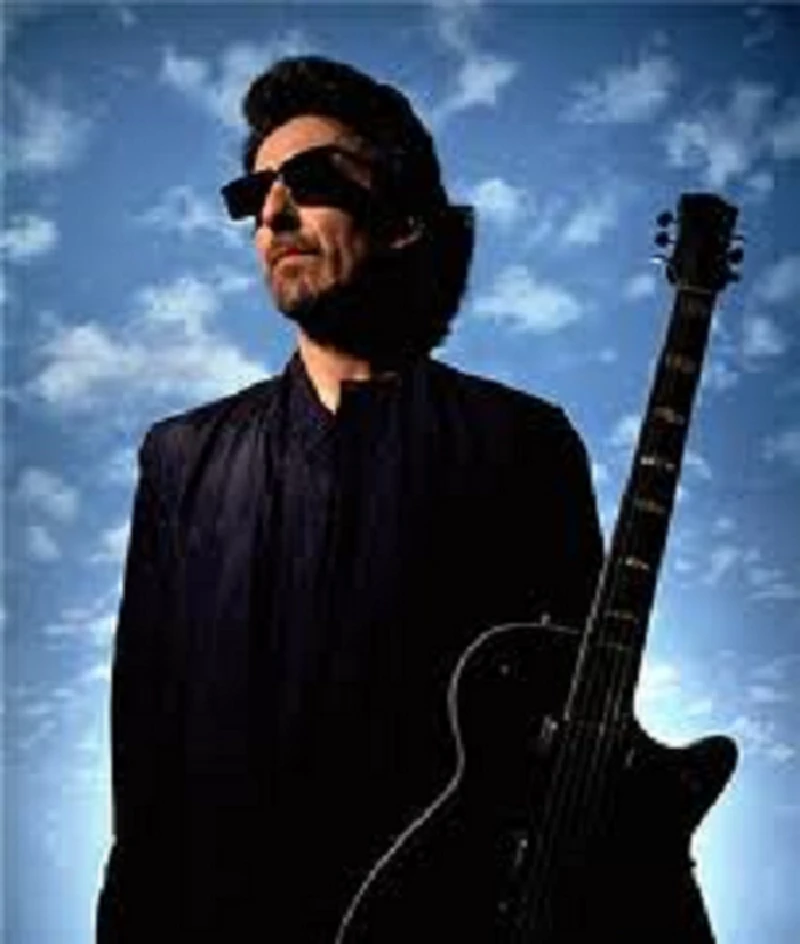
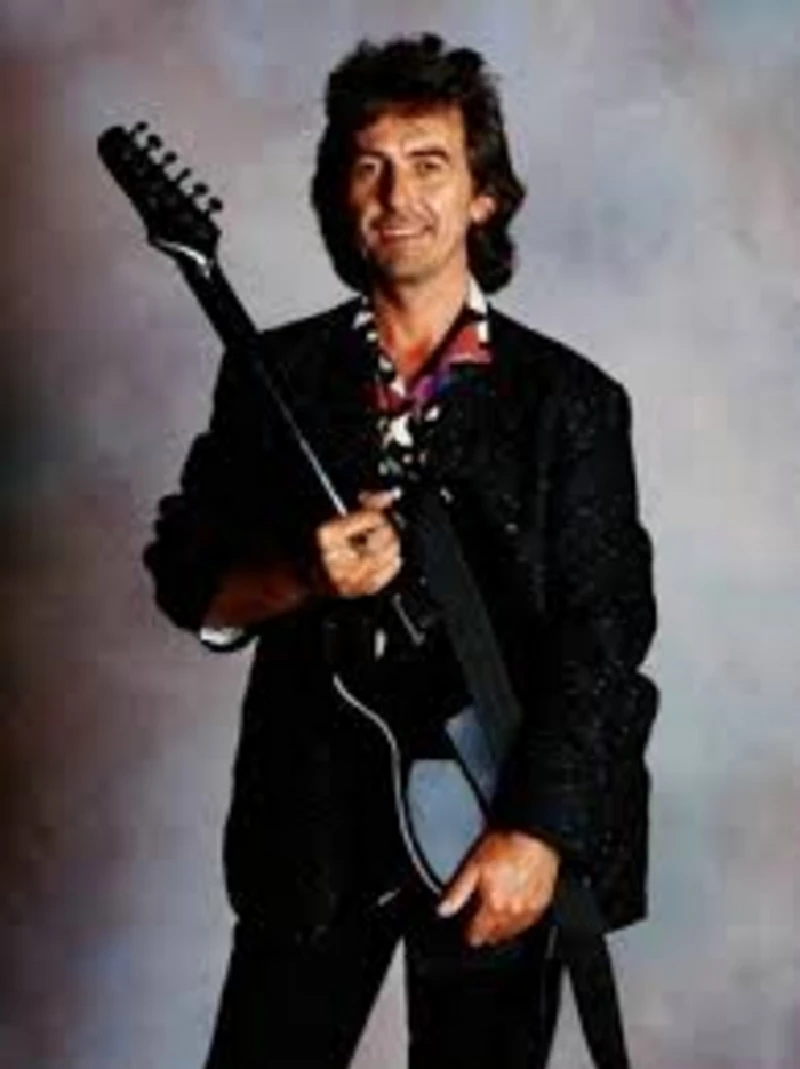
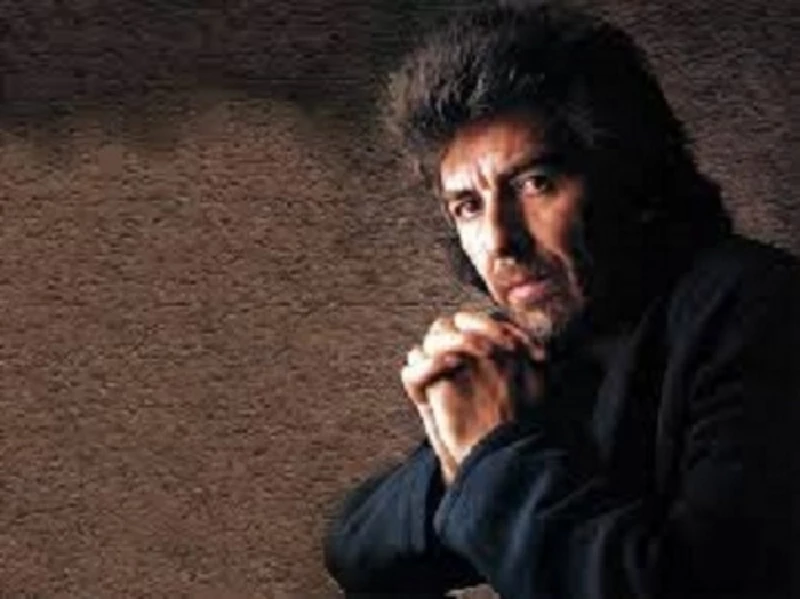
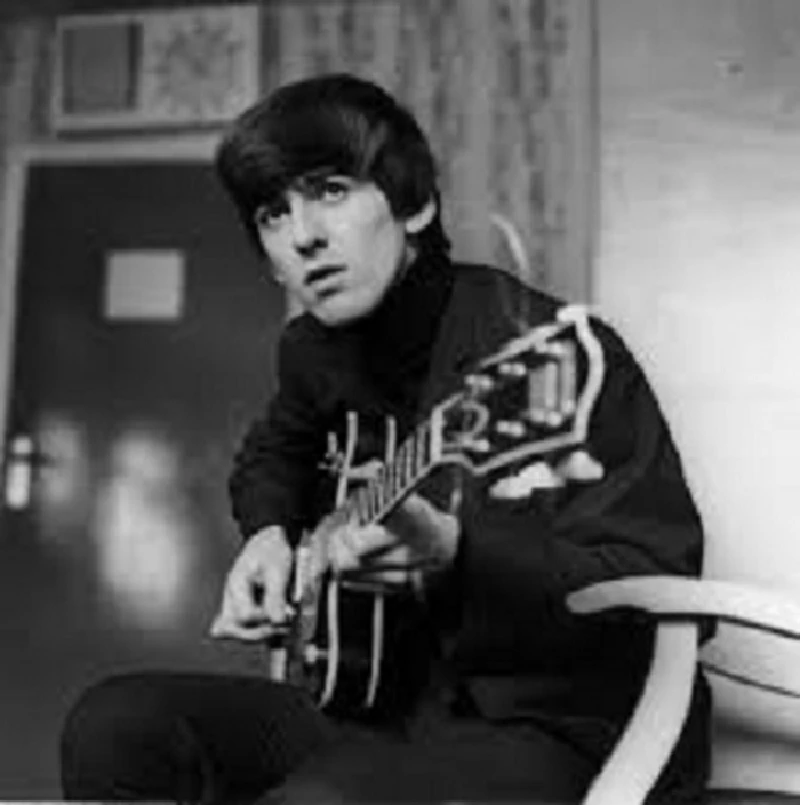
intro
In an archive interview from 1987, Nick Dent-Robinson speaks to George Harrison about his work with Handmade Films, being an ex-Beatle and then new album, 'Cloud Nine'
favourite album |
|
Living in the Material World (2024) |
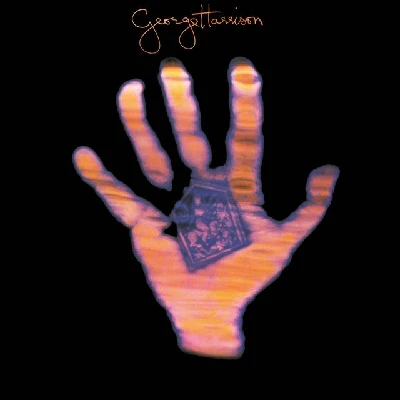
|
| In our Re:View section in which we look back at albums from the past, Eoghan Lyng looks at George Harrison's third album 'Living in the Material World', which has just been released in a repackaged 50th anniversary boxset |
| All Things Must Pass (2021) |
| All Things Must Pass (2021) |
features |
|
In the 1970's (2022) |
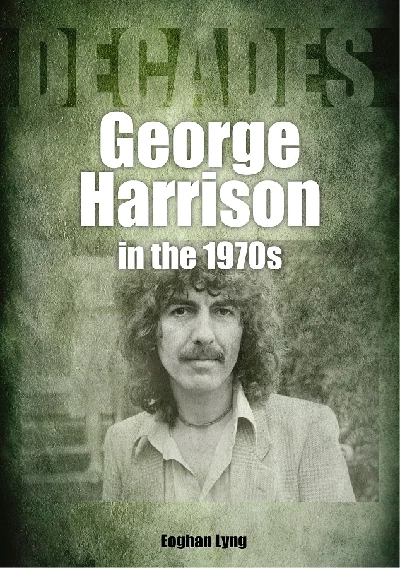
|
| George Harrison surpassed expectations as a songwriter after initially being regarded as "the quiet Beatle". In her 'Raging Pages' book column Lisa Torem discovers that Eoghan Lyng's new book explores many facets of the British songwriter's career. |
reviews |
|
Living in the Material World (2006) |
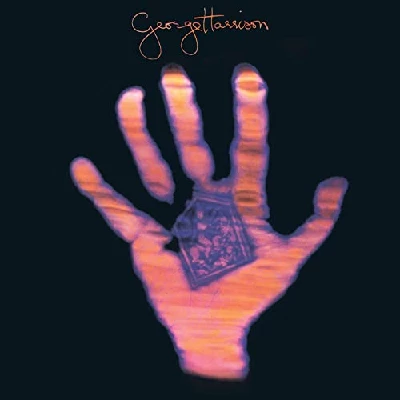
|
| Digitially mastered reissue with extra tracks of George Harrison early 1973 solo album |
most viewed articles
current edition
Shrag - Huw Stephens Session 08.12.10 and Marc Riley Session 21.03.12Gary Numan - Berserker
Razorlight - Photoscapes
John Hassall - Photoscapes
Max Bianco and the BlueHearts - Troubadour, London, 29/3/2025
Primal Scream - Photoscapes
Roberta Flack - 1937 - 2025
Waeve - Club Academy, Manchester, 18/3/2025
previous editions
Heavenly - P.U.N.K. Girl EPManic Street Preachers - (Gig of a Lifetime) Millennium Stadium, Cardiff, December 1999
Boomtown Rats - Ten Songs That Made Me Love....
Beautiful South - Ten Songs That Made Me Love...
Barrie Barlow - Interview
Oasis - Oasis, Earl's Court, London, 1995
Trudie Myerscough-Harris - Interview
Dwina Gibb - Interview
Pixies - Ten Songs That Made Me Love...
Doris Brendel - Interview
most viewed reviews
related articles |
|
Louise Harrison: Profile (2015 |
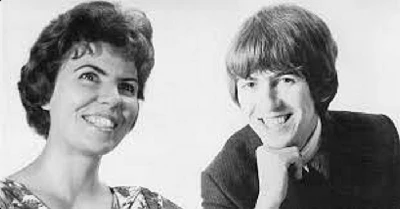
|
| Lisa Torem speaks to Louise Harrison, the older sister of George Harrison, about the Beatles tribute band which she manages and her recent memoir |
| Gary Wright: Feature (2014) |
Pennyblackmusic Regular Contributors
Adrian Janes
Amanda J. Window
Andrew Twambley
Anthony Dhanendran
Benjamin Howarth
Cila Warncke
Daniel Cressey
Darren Aston
Dastardly
Dave Goodwin
Denzil Watson
Dominic B. Simpson
Eoghan Lyng
Fiona Hutchings
Harry Sherriff
Helen Tipping
Jamie Rowland
John Clarkson
Julie Cruickshank
Kimberly Bright
Lisa Torem
Maarten Schiethart